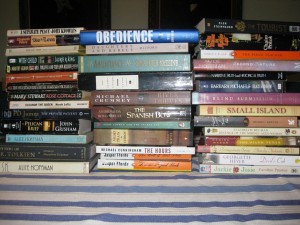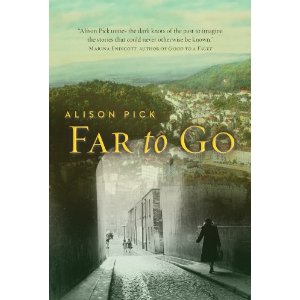Okay we’ve read the evidence. What can the historian, and the historical novelist, do with it? Let’s be both prosecution and defence and see what we come up with.
The main problem with the story, I think, is our natural aversion to a tale of incest and the way it conflicts with our sympathy for Eleanor. What might a prosecutor say? Eleanor was quite young at the time of the Second Crusade, about twenty six. In all likelihood, before she met him on a pier in Antioch, she had probably spent little to no time with her uncle, since he had been at court in England prior to his journey to Jerusalem in 1136. And by all accounts, he was quite a hottie, tall and good-looking.
More importantly, attitudes to what we would consider incest were very different in the south of France, where Eleanor came from. The church at the time was trying to push a very strict definition of marriage that excluded even quite distant relative from marrying. But in the south they practiced partible inheritance, meaning a family’s property would be divided between all the heirs (including women) when the parents died. This meant that a family’s holdings would be divided into smaller and smaller pieces — unless relatives married and kept the bits together. And Eleanor herself was the product of a union that would squick most of us out. Her father, William X of Aquitaine, was the child of Wiliam IX. Her mother, Aenor of Chatellerault, was the daughter of William IX’s mistress, Dangereuse.
Many of the later salacious stories abut Eleanor come from the pens of authors in England who had every reason to discredit her in support of their king, Henry II, once the two became estranged. But the two who report the story of Eleanor and Raymond had little reason to shred her reputation. John of Salisbury was English, but much of his career was spent on the continent. William of Tyre, who is most explicit about the accusations, was even further from the world of the English court.
I’ve discussed evidence. There is also some interesting “absence of evidence.” King Louis’s chaplain, Odo of Deuil, wrote a history of the Second Crusade meant to glorify his master. Surely it was intended to cover the whole crusade, but in fact it ends abruptly right before the French reach Antioch. And there is some evidence that passages about Eleanor have been expunged from it, to minimize her role.
What can the defence say to all of this? Simply this: The crusade was a failure. And the chronicles our historians wrote were not meant to be simple collections of facts; they were to be moral explanations that explained why the world was as it was within a Christian framework. Failure was expressed as God’s will and the consequences of sin. The notion that a prideful, arrogant, greedy, or lustful woman could bring down a kingdom was an ancient one and used often in medieval histories to explain reverses of fortune. Certainly there was something wrong between Eleanor and Louis, which came to a head in Antioch. But perhaps Eleanor was merely supporting Raymond politically, wanting to remain with her armies to help him in Antioch, while her husband preferred to go south to Jerusalem. Unused to a political women, perhaps the historians just assumed sex was involved because it fit their moral universe.
It is interesting to me that while most popular historians dismiss the tale of Raymond and Eleanor, the most recent study of the Second Crusade by an academic historian, Jonathan Phillips, gives it much more credence. People who write historical fiction often talk about “getting the facts straight,” and of course this is important. But what I hope I have shown in these posts, is that history isn’t only or even mostly about a set of facts. We have very few facts, much fewer than you would imagine. What we have is evidence. And it is in the interpretation of that evidence that the historian and the novelist create art.


